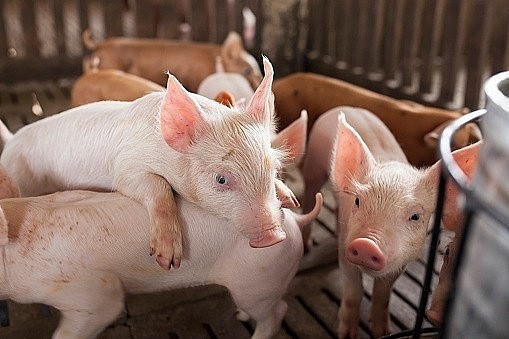
Water is a highly infectious route for disease transmission. As such, ensuring animals get only clean drinking water will help lower disease risks.

Unfortunately, water is often overlooked in a farm’s overall biosecurity plan. According to the Mavin Group, monitoring and reviewing water-related factors are critical in ensuring proper biosecurity on farms.
Humans, through activities like littering and dumping carcasses of diseased animals, or overloading when there is a local epidemic, are among the causes of water contamination that causes disease spread.
If the pigs’ drinking water is polluted, they can get sick. If the water is dirty, of poor quality, and/or contains high levels of metals, that also affect the pig’s health,” Mavin’s Technical team told Asian Agribiz.
In addition, weather and seasonal factors—like the rainy season—also drive the spread of diseases.
“The surface water is an important source of water for small-scale, backyard farmers. If not treated well, it will affect the quality and health of the animals. At commercial farms, the risk is less as the drinking water is carefully filtered before use,” said Mavin.
Checking water quality
The biggest challenge in ensuring safe drinking water is the quality of the sources.
“Contaminated waters are difficult to filter, especially when you have no direct access to the sources,” said Mavin.
“In addition, when a foreign object falls into the storage tank or the water tank is not cleaned for a long time, it will cause heavy metal pollution and microbial contamination in the water.”
Farms must monitor the water quality regularly for color and taste abnormalities.
“We should conduct periodic testing to ensure that the water source is not contaminated and detect any abnormalities early,” said Mavin. “Also, we should regularly check any digestive problem in the pigs as this could be caused by contaminated water sources.”
Water parameters that should be regularly monitored include pH level, and levels of microorganisms and heavy metals.
Cleaning the water
To ensure that the pigs’ drinking water is clean and safe, every farm must have its own well or water system.
“If you cannot drill a well, and there is no groundwater around, you can buy tap water, but the cost will be very high,” said Mavin.
All farms should also have a settling tank, a filter tank, and a chlorine treatment system.
“These are minimal water treatment systems. Many other modern water treatment systems can also improve water quality,” said Mavin.
Water pipes should be cleaned regularly and drinking nipples must be uninstalled and disinfected after each cycle.
If a water quality problem occurs, find out first the cause of the problem before taking any action.
“If the pipes are dirty or clogged, they should be treated with pipe cleaning solutions. If the water supply fails, a replacement source must be found quickly. If the drinking nipple is damaged, repair or replace it immediately,” said Mavin.